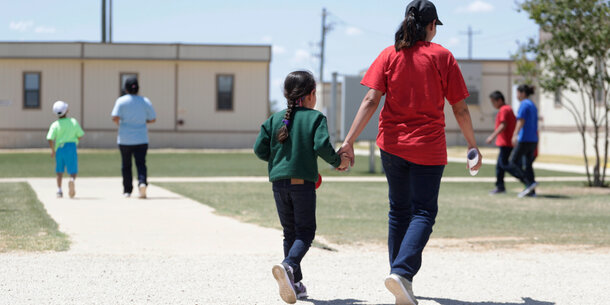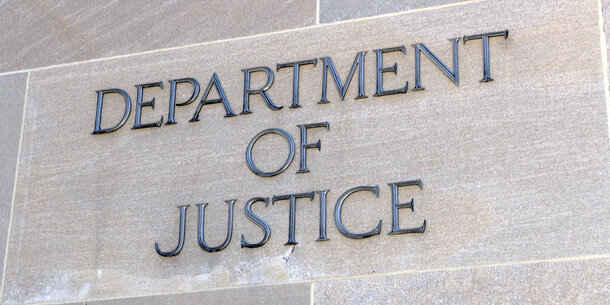In 2016, the U.S. Department of Justice reported that at least half of state and federal prisoners had one or more minor children, totaling just under 1.5 million minor children with an incarcerated parent. Indeed, 1 in 14 children in the United States has experienced parental incarceration. A few years ago, I was one of those kids.
On May 20, 2014, I didn’t wake up to my usual alarm clock. Instead, I was awakened by police officers banging on our front door. On this day, my life changed forever. I was just a 13-year-old girl expecting a normal morning of getting ready for school. I never expected that it would be the last time I’d see my father dressed in anything but an inmate uniform for three years.
 Oluwademilade O. Ogunlade
Oluwademilade O. Ogunlade
I struggled growing up but didn’t feel like the challenges I faced were overwhelming. I even remember arguing with some friends in middle school about how perfect my life was. When they’d strongly disagree because “no one’s life is perfect,” I argued rather overzealously that I had two parents, two siblings, a home, and food on my plate. Maybe it was perfect, and maybe it wasn’t. What I knew for sure was that I enjoyed life.
Children shouldn’t bear the costs of their parents’ misconduct — but I did. After my dad went to prison, I struggled to find joy in life. I was often sad, angry, and frustrated. I felt resentment and spite, despising the system that took him away from me. Even more destructive than my father’s incarceration was what followed: he was sent out of state. Losing him was hard enough, but having him sent to another part of the country hurt even more. Ultimately, the cost and time barriers to visiting him heavily restricted our ability to see him in person, so we were left with phone calls as our primary means of contact — conversations that were capped at a mere 15 minutes, making it extremely difficult to sustain our relationship.
The first year of my dad’s sentence, he was in a Mississippi prison — some 1,100 miles away from New York City, where I’d lived with my family my whole life. For me, this was the hardest part of his sentence because I didn’t get to see him. It wasn’t until my mother requested his relocation that he was transferred to a correctional facility in New York.
The only thing that made his stay in Mississippi bearable was that I sometimes was able to speak to him on the phone. Unfortunately, the piling costs of outrageously expensive phone calls were also a serious financial burden. And families in this situation shouldn’t have to choose between making ends meet and talking to their loved ones.
At least now the capacity for video conferencing has grown. But it cannot come close to the meaningful in-person connections children need with their parents.
Many young people impacted by parental incarceration have been telling their stories like I am. We are not just advocating for empathy and understanding — we are trying to grow support for legislative efforts that could help current and future children who find themselves in this situation.
In May, the New York State Senate passed one such measure, Senate Bill S2841A, which seeks to make it easier for families to stay connected when one member is incarcerated. The bill would ensure that visiting hours are accessible and long enough, and it would also establish video conferencing as a supplement to visitation, not a replacement.
The state senate has passed this for the past three years, and it is time for the assembly, senate, and governor to make sure it doesn’t go to another legislative session without being signed into law.
This isn’t the only bill that needs to be prioritized — the Connecting Families New York Act was also stuck in committee when this year’s session ended. This bill would give incarcerated New Yorkers access to free phone calls and emails to help them stay in touch with loved ones. It is badly needed, as one in three families goes into debt just to talk to their loved ones on the phone.
These reforms won’t only benefit families with an incarcerated member — they will be good for society. Criminology professors William D. Bales and Daniel P. Mears found that incarcerated people who were visited had a 31 percent lower chance of recidivism than those who weren’t.
Being denied access to my father was never something I thought would happen to me, so I want to make sure it doesn’t happen to anyone else. In-person visiting should be the norm for children with incarcerated parents, as should free phone calls and texting. Children should be able to stay connected to parents moving through the criminal legal system. Children of incarcerated parents need unwavering support, like any child.
Despite research to the contrary, some deny the benefits of contact between children and their incarcerated parents. This unfortunate reality underscores the importance of hearing the stories and experiences of the children of incarcerated parents. The well-being and rights of children should be considered by the criminal legal system. Most children do want to visit their incarcerated parents, and research even shows that adopting child-friendly visiting practices can be incredibly beneficial to them.
I wish I could have been able to better maintain a relationship with my father while he was behind bars. At such a young age, I went from having a father who’d wake me up every single morning, take me to school, and pick me up at the end of the day to maybe getting the opportunity to speak to him a few times a week. This took its toll on me. My hope is that one day, it won’t have to be like this for other children. For more ways to help, please check out the See Us Support Us website to learn how you can support children of incarcerated parents and advocate for the passage of these bills.


